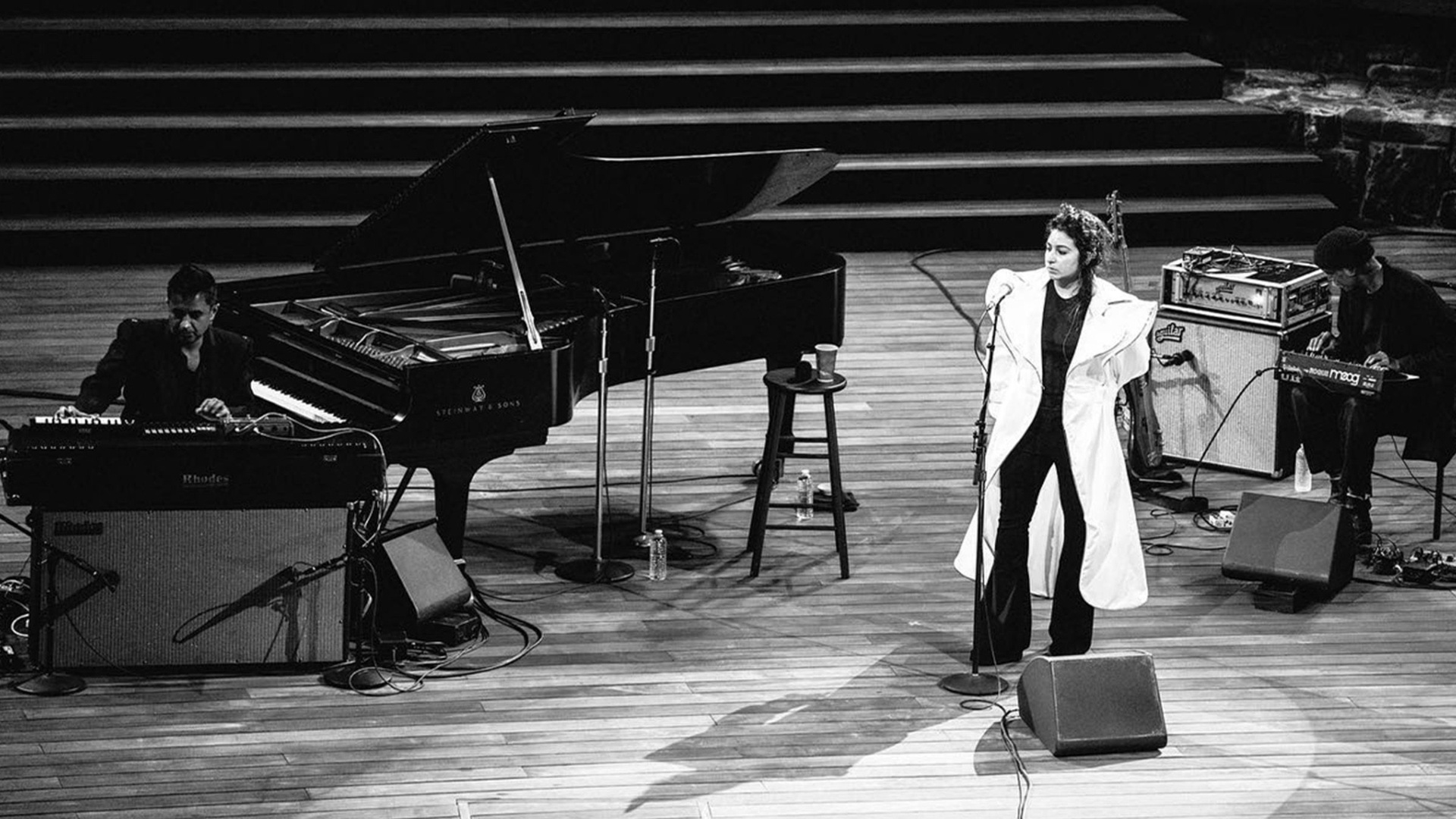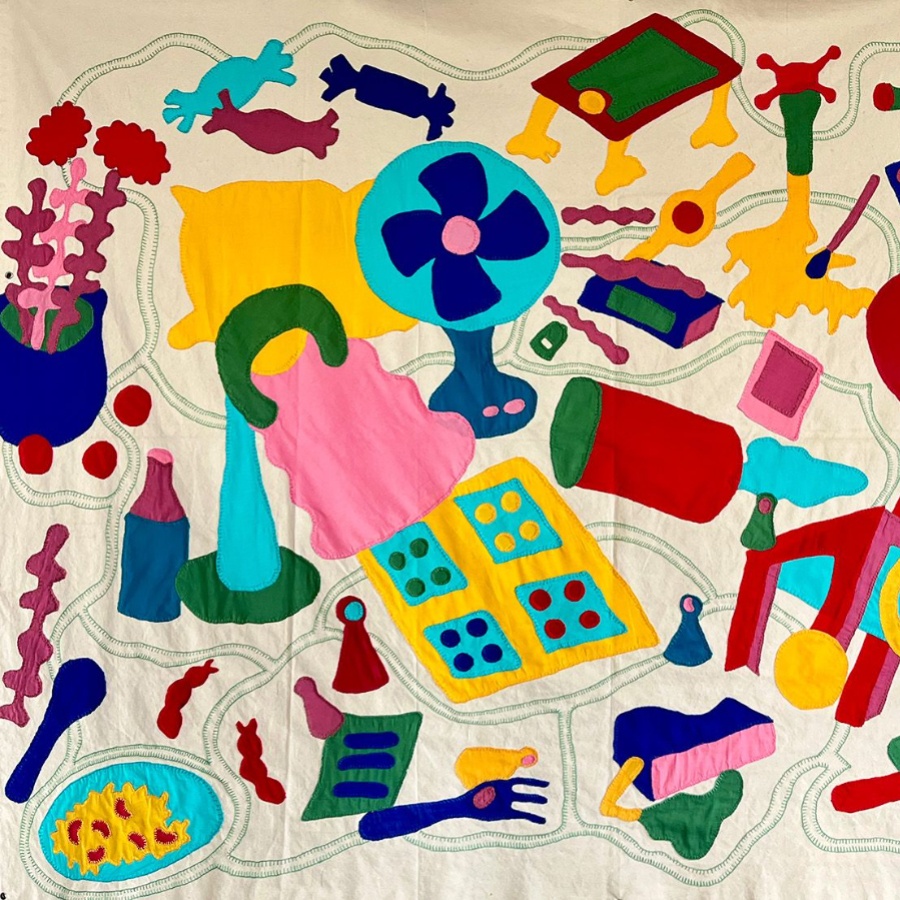From a rustling meadow of acoustic guitar notes emerges Arooj Aftab’s sonorous voice. “Aey nahin abhi tak/ koi baat ho gayi,” intones the Brooklyn-via-Lahore musician in the first song from her new record, Night Reign. “Shayad unke sheher mein/ achanak raat ho gayi,” she goes on. Is it a song about the anxiety of waiting, or the eagerness to offer one’s beloved the benefit of doubt? The subtext might be open to interpretation, but the tone isn’t. ‘Aey Nahin’ takes an Instagram post by Aftab’s friend, Pakistani actor and writer Yasra Rizvi, and transforms it into a pop-jazz meditation. From its very first note, Aftab does what she does best: set that half-moon-scented-night mood.
Like the critically acclaimed Vulture Prince, Aftab’s breakthrough album of 2021, Night Reign is yet another demonstration of the Grammy-winning musician’s complete mastery of jazz composition and music engineering, her eye for unexpected but fitting collaborators, and her world-melding vision of globally resonant music. The album is full of gorgeous, introspective verse that hops across centuries and geographical coordinates—there’s poetry from Mah Laqa Bai Chanda, one of the rare women to be published in the 18th century, as well as Rumi and 20th-century French poet Jacques Prévert. But where Vulture Prince was marked overtly by grief (the death of Aftab’s brother precipitated and shaped its songs), Night Reign is a brighter, more hopeful work.
“Vulture Prince was a sad record because I was sad,” Aftab told The New York Times. “But in the years that passed, I’ve had this joy inside of me. It would be unfair if it didn’t translate in my music.” And it does, to the extent that a mash of jazz and ghazals (both forms given to melancholy) can do. Which is to say, if ‘sad girl music’ is your jam, Aftab’s new record, indeed her whole body of work, would fit easily on your playlists.
Like many artists, Aftab resists labels. What creative person would like to be reduced to a single type, a genre, representative of one ‘exotic’ culture, to cater to one imaginary market? If nomenclatures like world music and fusion have had the global South up in arms for decades, the subgenre of sad girl music has seen growing criticism as it has re-emerged in the TikTok era.
Even before TikTok gave it a buzzy name, sad girl music (SGM) had been around us for decades really. A catchall (derisive) phrase for (mostly) guitar-toting female singer-songwriters who make emotional music, SGM’s trademark can be seen in the music of Billie Holiday in the 1950s, Nico in the 1960s, Fiona Apple in the 1990s, Lana Del Ray from the 2010s onwards, now joined by Billie Eilish, Phoebe Bridgers, and Mitski.
Absolutely none of them appreciate being slotted into this category, but sad girl is a mood—and in the social media era, there are sad girl makeup tutorials, even a sad girl starter pack playlist on Spotify and its cousin on the spectrum of sadness, pioneered by an anime girl on YouTube called Lofi Girl.







